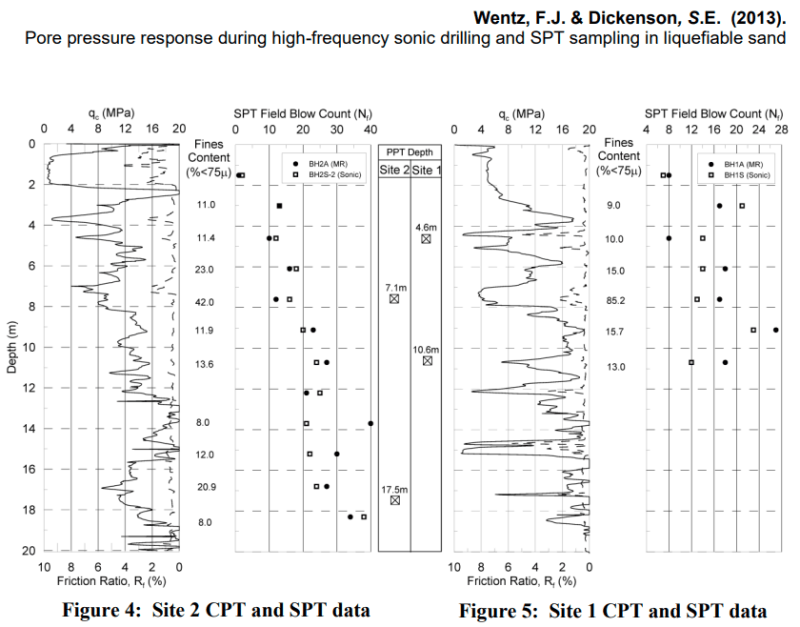Engineers,
For Basic SPT works, I have noticed the drilling technique varies between regions (or even between countries). I have seen crews using bentonite mud for drilling, others instead use continuous hollow flight augers and inside the augers they put the rods and spoon and perform the SPTs. I have seen others, that instead, the perform SPTs using casings.
After asking to several drillers what is the preferred or best method none of them were able to give a straight answer. The answer was "that is how i have been doing this all my life, so this is the right way". Few others drillers told me they prefer to deal with casings instead of hollow augers because casings are lighter than the augers. This same crew told me dealing with casings is faster to perform SPTs than using hollow flight augers.
Do you know if there is any advantage between any of these techniques?. All these techniques involve tools therefore money is a factor.
Please advise.
For Basic SPT works, I have noticed the drilling technique varies between regions (or even between countries). I have seen crews using bentonite mud for drilling, others instead use continuous hollow flight augers and inside the augers they put the rods and spoon and perform the SPTs. I have seen others, that instead, the perform SPTs using casings.
After asking to several drillers what is the preferred or best method none of them were able to give a straight answer. The answer was "that is how i have been doing this all my life, so this is the right way". Few others drillers told me they prefer to deal with casings instead of hollow augers because casings are lighter than the augers. This same crew told me dealing with casings is faster to perform SPTs than using hollow flight augers.
Do you know if there is any advantage between any of these techniques?. All these techniques involve tools therefore money is a factor.
Please advise.

